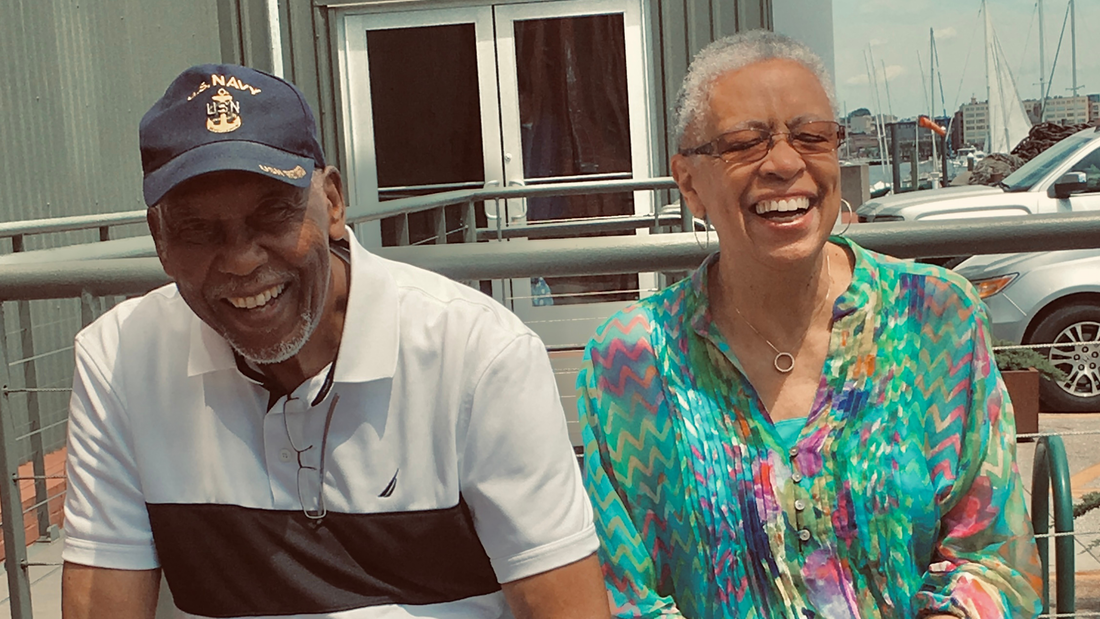|
At first I thought it was a mistake. Why was AARP sending me literature? Did they get me confused with my mom? We don’t have the same first name, but still—I couldn’t think of any other explanation. Weird, I thought, as I tossed it in the recycling bin. I’m not that old. When they kept sending mail, I complained to my girlfriends. My friend Nifa texted just do it. I did and I’m about to enjoy these discounts! I’m a sucker for a deal, so I opened the envelope. I realized they wanted me to charge me an exorbitant $1/month to tell me I’m old. No way, I thought, as I tossed it in the recycling bin. I’m not that old. Then, last month, I started looking into trips I could take with my 80 year old parents. I’d just gone on a running retreat with my college BFF. And I was floating on that intoxicating cloud of hope and possibility that comes from going away and being reminded of who you are beneath all the busy. I just knew I could find places where my parents and I could see the sights together. Groups in which the guides move slowly and speak clearly. Tours that offer assistive devices in case folks get tired or can’t see well. Companies that require proof of vaccination. I found lots of trips for “seniors,” “mature travelers,” and “demanding adults.” But none of them were for my parents. They thought “light” activity involved 3 miles of hiking and several sets of stairs. The few black people in the pictures had only started going grey and had just enough wrinkles to make aging look fun. In other words, they looked like me. Three hours of seeing the same stock photos. Three hours of paging through option after option and thinking that looks like fun for me and Mr. InkWell…. I finally pushed back from my desk and realized what the universe was trying to tell me, through the unappealing oracle of the AARP: I actually am that old. * This happens all the time when we’re writing. We’re chugging along, with one vision of who we are and how we’re doing—maybe we’re not great, but we’re keeping it together. Then we see our rival’s newest publication. Or the editor says “change your argument.” We miss one writing day, then another, then a week has gone by. Then, all of a sudden, we’re somebody new. A failure. An idiot. We’re never going to get/be/find whatever it is we’ve bent our life into a pretzel for. The longer I coach, the more I see that one of the fundamental tools a writer has at her disposal is the story she tells—not about her research or her record, but about herself. It’s the reason that I teach the skill of Revising Your Writing Story in nearly every InkWell program I offer, whether I call it that or not. Because our (writing) lives are replete with what I call Story Hours. And the better able we are to handle them, the more joy and satisfaction we get from writing. * A Story Hour is any moment that causes you to question your vision of who you are and construct a new version of the tale. And they are everywhere, honey. When you’re headed toward your writing time, get that first tingle of dread and think: O, it’s not that hard just to sit down and write, why do I always make such a big deal out of everything? When you make amazing progress on the more pleasurable project instead of digging into the one that’s harder and due sooner, then say to yourself: Ugh. I’m never brave enough to do the tough thing. Or when you do the opposite—work on the boring project instead of the more pleasurable one, then say: When will I stop being such a pushover and actually do the work I care about?! Before, during, and after every writing session. While the ms. is in production. When it comes out and we have to talk about it. When it gets reviewed and when it doesn’t. All of them are Story Hours. As is every funding, job, and sabbatical application. Every annual, third year, tenure, and promotion review. Every one is a moment when you present, not just a version of a manuscript, but a version of ourselves as a writer. Now don’t get me wrong. There’s nothing wrong with stories and nothing wrong with us for telling them. We’re a meaning making species, and really, where would people of color be if we hadn’t grabbed on to our stories and held them dear? As writers, we need our story of who we are as a writer as much as we need our research. We need them to light our way, to help us keep going in the direction we meant to be going. We need them when we look in the mirror to make sure we’re seeing a reflection and not a distortion. The problem is that we tend to just kinda flop into our stories—we bump into a feeling (usually fear) and that feeling becomes the story and that story becomes the gospel truth and three hours later, you look up and you’re a senior citizen never going to finish that fucking book. Instead, we want to tell our stories intentionally.. Thoroughly. Compassionately. We want to tell our stories ourselves, not let other people tell them for us. We tell those stories, not to avoid the uncomfortable parts. But to deepen our appreciation for what we’ve done, and our commitment to what we have yet to do. * In fact, we’re in the middle of a Story Hour right now. One of the most intense of the year: when the end of the teaching term and the end of the calendar year coincide, and we begin weaving our inner understanding of what happened over the past 12 months. This Story Hour can provide us a wonderfully useful reminder of who our writing self is—what we feel proud of, what we want to work on, and how far along we are on the path to becoming the writer we want to be. But when we don’t know how to handle Story Hour, we inadvertently turn the storytelling tool into a weapon that makes writing even harder than it already is. So what I’d like to offer you this year is one way to get at a condensed version of your End of the Year Story—not one driven by fear and fatigue, but one rooted in trust and curiosity. One way to do that is to ask yourself two questions: The first is, “What happened in my world this year?” I ask you to consider this question to highlight the most fundamental fact of a scholar’s writing life: it happens within a context that, most of the time, undermines rather than supports your ability to dive deeply into writing. The second question to ask is, “What happened with my writing this year?” Notice I didn’t say, “What were my writing goals?” or “What did I accomplish?” Those questions are fine, but they focus on your product as a writer instead of on the practice you have, or your relationship to writing. These are the features of your writing life that need to keep you steady and satisfied. Of course, “What happened?” is a pretty big question, and a year is a pretty long time. So, here are two strategies you might use to jog your memory about the answers to those questions. One is to go through your journals for the last year and reverse outline each entry. A reverse outline is an outline of an already existing piece of writing—one you create by writing a single line that encapsulates the main point in each paragraph of the manuscript. In the case of your journal entries, you can write one sentence for each entry, just to keep it manageable. Don’t keep a journal or can’t bear to go through all the entries? Use your calendar instead. Look back at every month, reverse outlining your events instead. If you’re feeling especially ambitious, you can write a line for each week instead of one for each month. At the end of the process you’ll have a substantive, but manageable description of what things have filled your life all year long and how your writing fit in with them. Once you’ve outlined your Writing Story for this year, I want you to take one last step. I want you to summarize it from the perspective of two different people. The first is the (hopefully) imaginary senior colleague who was against your hire. Now take the same material and summarize it from the perspective of your very best friend—the one who loves you more than words can say, and also, always tells you the truth. Both of those stories are made from the same ingredients. Both will reckon with your triumphs and your weaknesses. And both will put you in a certain state of mind about how possible it is to move forward next year. Neither is more true than the other. But one gives you hope and direction, while the other says whatever you do is likely to go nowhere. Listen to what each of them has to say and how they say it. Then choose which one you’re going to carry with you into the new year. * That’s the great thing about your Writing Story: you’re the author. You get to decide what meaning you’ll make of the past and what changes you’ll make in the future. Once I’d had my “OShitImOld” moment, I tried to figure out what, exactly, bothered me about the idea. I peeked in on the fears I have around aging and death. I glanced over at the few but searing regrets I have about my past. And I flinched at the realization of how thoroughly I’d bought into, then reproduced, the heedless dismissal of anyone who’s not shiny and new and producing. Then I looked up the word “old” in the dictionary. Merriam Webster defines old as “having lived for many years: not young.” wtf does that mean I thought, fuming. Nothing, I realized. Only what I say it does. After that, I stopped looking for package tours for my parents. Instead I started designing my own trip. One that will perfectly fit my 81-year-old parents and their 51-year-old daughter. I’m still not joining the frickin’ AARP. But we’ll figure out how to do one thing a day. We’ll take it slow and take breaks. Just like you, we’re gonna write our own story. The stories won’t be perfect. But they will be ours. "Want the monthly InkWell blog delivered straight to your inbox? Subscribe to Inkling, a bite-sized, monthly newsletter filled with ideas, inspiration, and information for academic writers."
Comments are closed.
|
|
© 2018 InkWell Academic Writing Retreats
|

